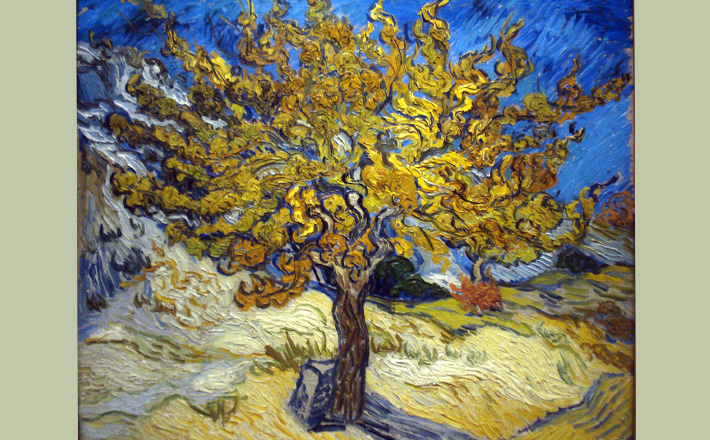Commentary on Lamentations 1:1-6
The book of Lamentations articulates the anguish of the Hebrews in the wake of the conquest of Jerusalem and the razing of the city by Babylon.
The first four chapters are composed as acrostic poems while the fifth chapter’s poem – twenty-two verses, but not an acrostic — seemingly points to a grief so unbearable and chaotic that it cannot be controlled either by form or liturgy.
In the opening verses of chapter 1, we hear the personified city of Jerusalem bewailing her plight. The first word, ‘êkah, translated by the NRSV as the interrogative “How,” is a word that serves as a standard opening to a dirge (see Isaiah 1:21; Jeremiah 48:17; Lamentations 2:1; 4:1, 2). There can be no doubt that this is a funeral song, sung by one who has lost her children (verse 5) and her husband. She has become “like a widow” (verse 1). Poignantly, widows were regarded as being among the most vulnerable of ancient Israel’s population since, without adult sons to provide for them, they were left without the means for subsistence.
Jerusalem has no doubt — and none of our hesitation! — to name the source of her affliction. Yes, “Her foes have become the masters” (verse 5) and have wreaked incalculable pain on her. Jerusalem’s real pain, however, consists of this: “the LORD has made her suffer for the multitude of her transgressions” (verse 5). That same notion that Jerusalem’s grief stemmed from God’s wrath appears throughout the book, [1] albeit the exact nature of those sins is never thoroughly described. [2] It was only later in the history of the Old Testament that the notion of a cosmic power aligned against God (such as the Devil or Satan) emerged.
Like Second Isaiah, with whom the poet of Lamentations seems roughly contemporary, this poet’s LORD forms light and creates darkness; God makes weal and creates woe (Isaiah 45:7). If the LORD of Lamentations “does not willingly afflict or grieve anyone” (Lamentations 3:33), he nevertheless does “cause grief” (3:32) and “has made her suffer for the multitude of her transgressions” (1:5). The remarkable point about this assertion is its’ appearance in a poem that summons God both to “look” [3] and to act to alleviate Jerusalem’s pain.
Apostasy is not an option for this poet. Nor is the Greek idea of “atheism” a possibility; Hebrew has no equivalent word for that concept. Exiles — and the personified city who here articulates their grief — know only that the LORD who has afflicted them is the only one who can end their pain. There is no one else to whom they can go, no one else they can blame, and so they utter their anguish in a dirge that aims to evoke the mercy of the LORD.
The grief that characterizes these poems is not the hopeful, courageous faith contained in the declaration of Habakkuk 3:17-18:
Though the fig tree does not blossom, and no fruit is on the vines; though the produce of the olive fails, and the fields yield no food; though the flock is cut off from the fold, and there is no herd in the stalls, yet I will rejoice in the LORD; I will exult in the God of my salvation.
To the contrary, the book ends questioning why the LORD has forsaken God’s people and leaves open the possibility that divine rejection is permanent (Lamentations 5:20-22).
It is likely true that this text is not immediately applicable in every North American context. Oh, there have been moments in our collective history where our national self-understanding was shaken by violence and war, where some among us were left wondering about God’s agency in the world’s catastrophes. The tragic events of 9/11 serve as one stark example. Other sad candidates are communities devastated by gun violence such as Newtown Connecticut, the site of the Sandy Hook Elementary school slaughter late in 2012, or any of a thousand neighborhoods in our cities where violent gangland murders of school children or of their parents remains an everyday reality.
And there certainly are communities whose lack of means and political power have left them devastated and with a real sense of having been forsaken by God. I think, for example, of the despair of undocumented aliens who, though not always suffering violence, nevertheless do “live(s) now among the nations, and finds no resting place; her pursuers have all overtaken her in the midst of her distress” (1:3). Such people, such communities, are given words to bring before God in the poetry of Lamentations.
Even if one is not blessed to be called to proclaim the word in a place where such suffering is palpable, however, there are reasons to give this text a voice. First, the lament of Jerusalem reminds us that such pain is actually experienced by believers — by brothers and sisters — on a daily basis. Beside the pockets of domestic despair, I think of the recent events in Syria (ongoing at the time of this writing) where far too many cities have literally been razed by artillery fire and where tens of thousands have died. How many of the dead are included in the approximately 2.5 million Syrians who are Christian? [4]
The average worshipper will be helpless to alleviate the distress of those believers or their Muslim neighbors. But we can join in their dirges and pray on their behalf. Likewise, the average worshipper will be able to do little immediately to alleviate the ongoing pain and frequent violence suffered by Christians and their neighbors in Palestine. But by hearing their pain and by entering into deep empathy with them, we can join our prayers to theirs. We can implore the LORD on their behalf, offering lamentations for those who cannot hear their own voices in the din of explosions and the over the cries of their anguish.
Who knows? By empathetically weeping with those who hurt far away and with those who suffer in our own contexts, we may come to love them. And if we come authentically to love them, our eyes might even be opened to see that the Lord to whom we cry out together is already there — where he ever is — among the broken and suffering in our world. Jesus is there, wounded, pierced, weeping, but speaking a quite promise of a reign of God that will yet come. Oh, maranatha! (1 Corinthians 16:22).
[1] Besides Lamentations 1:5, see 1:12, 14, 15, 17; 2:1-2, 5-9, 17, 20-22; 3:32-33, 37; 4:11,16.
[2] See, for example, Lamentations 2:14; 4:13, 22; 5:7.
[3] Lamentations 1:9, 11-12; 2:20; 5:1.
[4] On the religious demography of Syria see, conveniently, http://en.wikipedia.org/wiki/Religion_in_Syria#Christianity


October 6, 2013